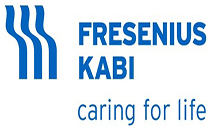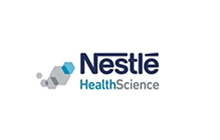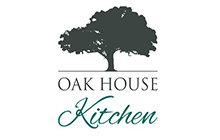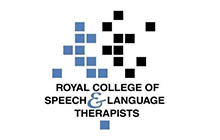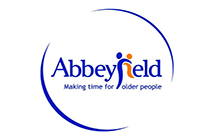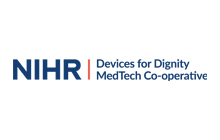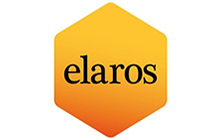
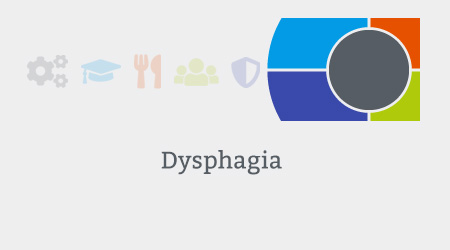
About the Dysphagia Guide
Having dysphagia has serious implications for a person’s health and well-being with increased likelihood of chest infections, malnutrition, dehydration, choking incidents and hospitalisations.
The quality of support provided for individuals with dysphagia who need modified diets and / or assistance is central to their health outcomes. Health and care workers need to have particular knowledge and skills to be able to provide safe care alongside specialist support from speech and language therapists, GPs and other health professionals.
The Royal College of Speech and Language Therapists have identified the Dysphagia Guide as a resource that can be used to support people working in care to gain the relevant level of competency for their role as laid out in the Eating, Drinking and Swallowing Competency Framework1. ( EDSCF )
Both the Essentials for Health and care staff and Essentials for Cooks’ sessions have an e-assessment and downloadable certificate to evidence successful completion.
Whilst co-developed with care home staff, the content of the Dysphagia Guide will be of relevance to other health and social care staff, informal carers, and potentially people with dysphagia themselves.
More information
The Dysphagia Guide originated out of a research project2, which sought out the experiences and views of care home staff as to the facilitators and barriers to good dysphagia management.
The findings informed the content of this resource which is designed to support best practice.
Care homes and home care agencies are supporting more people with multiple and complex needs than ever before. Dysphagia is very common in this population and it is estimated that over 50% of residents in care homes will have a degree of dysphagia (difficulties chewing and swallowing food and drinks).
The need to effectively manage the increasing numbers of care home residents requiring advice and support around swallowing difficulties is driving the need for a much more collaborative approach between health, social care and the care home sector 3.
The Dysphagia Guide provides a wide reach for free, consistent, expert information organised into 6 separate sessions which will be of interest dependent on your job role.
- Essentials for Health and Care Staff
- Essentials for Cooks
- Managers
- Balancing Risk and End of Life Care
- Training Resources and Recipes
- Dysphagia and Medicines
e-Assessments at the end of the ‘Essentials for Health and Care Staff ‘and ‘ Essentials for Cooks ‘ sessions enable you to evidence your knowledge for Level 2 dysphagia competency ( EDSCF) . Complete the relevant ‘Essentials’ session and then browse the other sessions which will be of interest dependent on your job role.
Bite size information is provided through text, images and videos. You can revisit any area quickly to refresh your memory or help explain something to a colleague.
This resource can be accessed via smart phones, tablets and laptop or desktop devices. Registration is not required to view any of the information but it is needed in order to download your assessment certificate.
- Eating Drinking and swallowing Competency Framework RCSLT 2020
- The Development of a Digital Dysphagia Guide with Care Homes : Co – Production and Evaluation of a Nutrition Support Tool ‘ Geriatrics 2019 Geriatrics 2019, 4(3), 48; https://doi.org/10.3390/geriatrics4030048
- RCSLT Guidance on the Management of Dysphagia in Care Homes, 2018
How to access
The Dysphagia Guide elearning resource is available free of charge to colleagues working in the NHS, independent sector and social care.
We have removed the requirement to register and log in:
Please note that if you do not log in, then your activity will not be tracked and you will not create a learning record.
To freely access the content of the Dysphagia Guide, select the View button to progress.
Existing HEE elfh account
If you already have an account with elfh, you will also be able to login and enrol on the programme from the View button.
Register for an HEE elfh account
If you would like to have a learning record but don’t have an account, then you will need to register at the link below. Please note this is not restricted and you can submit any email address:
If you are a care home worker or work for a non-NHS organisation and do not have your ODS location code available, you will need to select ‘None of the above apply to me’ in the ‘About You ‘ section.
For a step-by-step guide on registration, see: How do I register to access the Dysphagia Guide elearning resource?
Registering large numbers of users
If you are a HR, IT or practice manager and would like to register and enrol large numbers of staff within your organisation for access onto the Dysphagia Guide elearning resource, please contact elfh directly.
Organisations wishing to use their own LMS
For HR departments wanting to know more about gaining access to courses using an existing Learning Management System please contact elfh directly to express interest.
Support
If you need technical support, for example help with registration etc, please contact support@e-lfh.org.uk.
Meet the team

Elizabeth Barnett
Highly Specialist Speech and Language Therapist, STH
Professor Sue Pownall
Head of Speech and Language Therapy & Clinical Lead in Dysphagia, STH
Sarah Gray
Programme Manager, Technology Enhanced Learning, NHS England
David Williams
Senior Project Manager, Technology Enhanced Learning, NHS England
Tracy Watkins
Lead Learning Designer, HEE elfh
Rachel Grant
Learning Designer, HEE elfh
Louise Garrahan
Senior Marketing and Communications Officer - Technology Enhanced Learning, NHS England
Acknowledgements
External Advisory Group:
- Dr Angel Jimenez-Aranda – Digital Technology Lead, NIHR Devices for Dignity MedTech Co-operative, STH
- Louise Borges – Professional Guidance Manager, RCSLT
- Kamini Gadhok – MBE, CEO RCSLT
- Tim Jones – Nutricia UK
- Joshua Beever – Fresenius-Kabi
- Preston Walker and James Ball – Oakhouse Kitchen
- Nikki Bryan and Sharan Saduera – Nestle Health Science
Thanks to the Abbeyfield Research Foundation and Innovate UK for providing funding for an initial study to collect and develop resources and Elaros for their collaboration on the initial project.
Special thanks to:
- Davlyn Jones – Specialist dietitian , STH
- Julie Clarke – Head senior cook , Sheffcare
- Angel Jimenez-Aranda – Digital Technology Lead,National Institute for Health Research Devices for Dignity MedTech Co-operative
- Dr Sally Fowler-Davis – Principal Clinical Academic Researcher, College of Health, Wellbeing and Life Sciences, Sheffield Hallam University
- Dr Julie Skilbeck – Senior Lecturer in Adult Nursing, Sheffield Hallam University
- Leon Lockley – Filmmaker and Associate Lecturer in Cinematography, Sheffield Hallam University
- The staff of Ascot Lodge Nursing Home, HC-One
- The staff of Castelayn Care Home, Sheffcare Ltd
- The staff of Westbourne House Nursing Home, Palms Rows Health Care Ltd
- The staff of Scarsdale Grange Nursing Home.
Dysphagia and Medicines session:
- Stephen Doherty – Associate Dean, Wider Workforce Medicines Optimisation, Health Education England
- Karoline Brennan – Content Author, RLBUHT
- Paresh Parmar – Content Author, London North West University Healthcare NHS Trust



